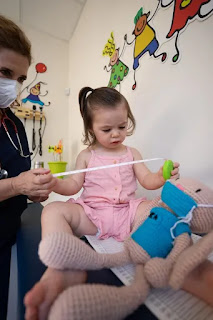Ethylene Glycol in Cough Syrups Tragedy – Asrar Qureshi’s Blog Post #900
Ethylene Glycol in Cough Syrups Tragedy – Asrar Qureshi’s Blog Post #900
Dear Colleagues! This is Asrar Qureshi’s Blog Post #900 for Pharma Veterans. Pharma Veterans aims to share knowledge and wisdom from Veterans for the benefit of Community at large. Pharma Veterans Blog is published by Asrar Qureshi on WordPress, the top blog site. Please email to asrar@asrarqureshi.com for publishing your contributions here.
 |
| Credit: cottonbro studio |
 |
| Credit: Jonathan Borba |
 |
| Credit: Los Muertos Crew |
 |
| Credit: Tima Miroshnichenko |
Two days ago, Reuters published the following news in Pakistan.
Pakistan seizes poisonous solvent used in cough syrup
By Asif Shahzad
January 11, 202411:37 PM GMT+5Updated 2 days ago
ISLAMABAD, Jan 11 (Reuters) - Pakistan has seized a batch of contaminated propylene glycol solvent that was labelled as manufactured by Dow Chemical, Thailand, the nation's drug regulatory authority said on Thursday.
The move comes as authorities have identified toxic propylene glycol used in cough syrups as a possible reason for the deaths of more than 300 children in Indonesia, Gambia and Uzbekistan since 2022.
"On analysis of a sample by the Central Drug Laboratory in Karachi, an unacceptable level of Ethylene Glycol was found," which can lead to serious health risks, the drug authority said.
It said the Ethylene Glycol's ingestion can "affect the central nervous system, and heart, and can cause kidney damage, which can be fatal."
Background
The global market for children’s over-the-counter cough, cold and allergy remedies in 2022 was worth about $2.5bn, according to market research firm Euromonitor.
These medicines combine active ingredients such as paracetamol (known as acetaminophen in the US) to reduce fever with a syrup made from glycerine or propylene glycol that is safe, sweet and easy to swallow.
The deaths of children from acute kidney injury began in July 2022 in Gambia, followed by cases in Indonesia and Uzbekistan. The WHO has said the deaths are linked to over-the-counter cough syrups the children took for common illnesses and which contained a known toxin, either diethylene glycol or ethylene glycol.
Deaths and WHO Investigation
In October 2022, the WHO announced a link between four paediatric cough syrups from one Indian pharmaceutical company and the deaths of 66 children in The Gambia from kidney failure. The products (Promethazine Oral Solution, Kofexmalin Baby Cough Syrup, Makoff Baby Cough Syrup, and Magrip N Cold Syrup) are believed to be contaminated with diethylene glycol and/or ethylene glycol. The products involved were manufactured by Maiden Pharmaceuticals in December 2021.
This has led to Maiden Pharmaceuticals' products being banned in The Gambia; a probe by the CDSCO and volunteers from health agencies in The Gambia going door to door in an urgent recall.
In December 2022, a parliamentary committee in The Gambia recommended prosecution of the Indian company, Maiden Pharmaceuticals. It also recommended banning all products by the firm in the country.
Indian authorities started conducting an inquiry into an April 2023 allegation that a pharmaceutical regulator in Haryana state, who holds a senior position in the state health department, accepted a bribe and switched samples of contaminated cough syrup before the state government laboratory tested them. The cough syrup in question was produced by Maiden Pharmaceuticals, and it has been implicated in child deaths in Gambia. Tests conducted by two independent laboratories on behalf of the WHO confirmed the presence of lethal toxins—ethylene glycol and diethylene glycol in the syrup. Indian authorities, however, did not find any toxins, but did identify labeling issues with Maiden Pharmaceuticals' cough syrup. Naresh Kumar Goyal, the founder of Maiden Pharmaceuticals, has previously denied any wrongdoing in the production of the syrup.
The Indian government has mandated that after June 2023, cough syrup manufacturers must have their products tested before exporting them. These companies are required to obtain a certificate of analysis from a government-approved laboratory. A list of approved laboratories, both at the central and state government level, was provided where the samples can be tested.
In December 2022, Uzbekistan's health ministry said that 18 children died from renal problems and acute respiratory disease after drinking cough syrup manufactured by Indian drug maker Marion Biotech. The statement did not specify over what time period the deaths occurred. As a result, Marion Biotech, was suspended from Pharmexcil, an Indian government-linked trade group. As a result, state security police in Uzbekistan arrested four people.
Sources told Reuters that Marion purchased industrial-grade propylene glycol as an ingredient from Maya Chemtech India, which is not licensed to sell pharmaceutical-grade materials. Maya is not facing charges but the investigation is ongoing. Marion did not test the ingredient it purchased.
The Naturcold brand of cough syrup is associated with the tragic deaths of multiple children in Cameroon. WHO testing on June 27, 2023, revealed alarming levels of diethylene glycol in Naturcold, reaching as high as 28.6% – over 200 times the acceptable limit, which should not exceed 0.1%. This highly toxic solvent, normally used in air-conditioners and fridges, can lead to severe symptoms, including acute kidney injury and even death if ingested.
The packaging of the deadly medicine falsely claimed that it was produced by a British company called Fraken International (England), but no such company exists in the UK. The actual manufacturer is Riemann Private Ltd, an Indian company based in Indore, and it appears to be exported to global markets, including Cameroon, by another Indian company, Wellona Pharma, based in Surat, Gujarat. The UK’s Medicines and Healthcare products Regulatory Agency keeps an eye on counterfeit claims of UK origin made by foreign pharmaceutical companies, as such claims are used to add credibility to otherwise adulterated, unlicensed, or substandard medicines.
Riemann Pvt Ltd is under investigation and faces potential disciplinary action from the Indian drug regulator, the Central Drugs Standard Control Organisation. Despite the ongoing investigation, the company continues its operations and drug manufacturing activities.
The World Health Organization (WHO) is addressing the global threat of toxic cough syrups that have caused the deaths of more than 300 children across multiple countries in 2022 and 2023. The WHO is working with six additional countries, bringing the total to 15 countries, to track these dangerous medicines. The WHO team lead said that tainted syrups are an ongoing risk. He cautioned that the presence of contaminated medicines could persist for several years, as warehouses may still contain barrels of adulterated propylene glycol. The manufacturers that exported the syrup to other countries in the current spate of incidents are four Indian manufacturers (Maiden Pharmaceuticals, Marion Biotech, QP Pharmachem, and Synercar) and one Chinese manufacturer (Fraken Group). Safety alerts have been issued by government agencies in the affected countries, as well as by countries conducting tests on their behalf and the WHO, while investigations into the matter continue. The WHO has urged countries to enhance surveillance and offer support to countries lacking testing resources.
The WHO also is considering whether to advise families globally to reassess the use of cough syrups for children in general while questions over the safety of some of these products are unresolved, the person said. WHO experts are evaluating the evidence for whether, or when, such products are medically necessary for children, the person said.
Ethylene Glycol
Ethylene is an organic compound with the formula (CH2OH)2. It is mainly used for two purposes, as a raw material in the manufacture of polyester fibers and for antifreeze formulations. It is an odorless, colorless, flammable, viscous liquid. It has a sweet taste, but is toxic in high concentrations.
Since the 1990s, several mass poisonings from toxic cough syrup have occurred in developing countries. In these cases, an ingredient in cough syrup, glycerine (glycerol), was replaced with diethylene glycol, a cheaper alternative to glycerine for industrial applications. Diethylene glycol is nephrotoxic and can result in multiple organ dysfunction syndrome (MODS), especially in children.
There have been poisonings in Panama, China, Haiti, Bangladesh, Argentina, Nigeria, India (twice), Pakistan, Indonesia, Uzbekistan and The Gambia between 1992 and 2022, due to contaminated cough syrup and other medications that incorporated inexpensive diethylene glycol instead of glycerine.
Health Effects
• Ingestion of ethylene glycol produces CNS depression which may be accompanied by nausea, vomiting, and abdominal cramps.
• Metabolites of ethylene glycol produce severe metabolic acidosis and damage to the brain, heart, and kidneys.
• Severe poisoning is potentially fatal if treatment is inadequate or delayed.
Acute Exposure
Upon ingestion, it is rapidly absorbed (within 1 to 4 hours). Less than 20% is excreted unmetabolized; most is successively metabolized to very toxic compounds. A characteristic progression of toxic effects can be roughly divided into three stages, although overlap is possible:
Stage 1: From 30 minutes to 12 hours after exposure, unmetabolized ethylene glycol produces CNS depression, intoxication, and hyperosmolarity similar to that produced by ethanol.
Stage 2: From 12 to 48 hours, metabolites produce severe acidosis with compensatory hyperventilation. The acidosis is primarily the result of an increase in glycolic acid, although glyoxylic, oxalic, and lactic acids also contribute in small part. Calcium oxalate crystals are deposited in the brain, lungs, kidneys, and heart.
Stage 3: From 24 to 72 hours, the direct toxic effects of ethylene glycol metabolites in the kidneys can cause acute renal failure.
Children do not always respond to chemicals in the same way that adults do. Different protocols for managing their care may be needed.
Sum Up
Greed has no limits, even if it leads to killing. Pharmaceutical business owners worldwide do not consider their business to have a human service element; it is only business for profit. The battle between manufacturers and regulators is important and must continue. Pakistan is like any other developing country where accountability is lax because greed comes first for everyone. People should understand more and protect themselves.
Concluded.
Reference:
Pakistan seizes poisonous solvent used in cough syrup | Reuters
Ethylene Glycol | Medical Management Guidelines | Toxic Substance Portal | ATSDR (cdc.gov)
This is how cough syrup gets poisoned (businesslive.co.za)
Ethylene glycol - Wikipedia
Toxic cough syrup - Wikipedia



Comments
Post a Comment